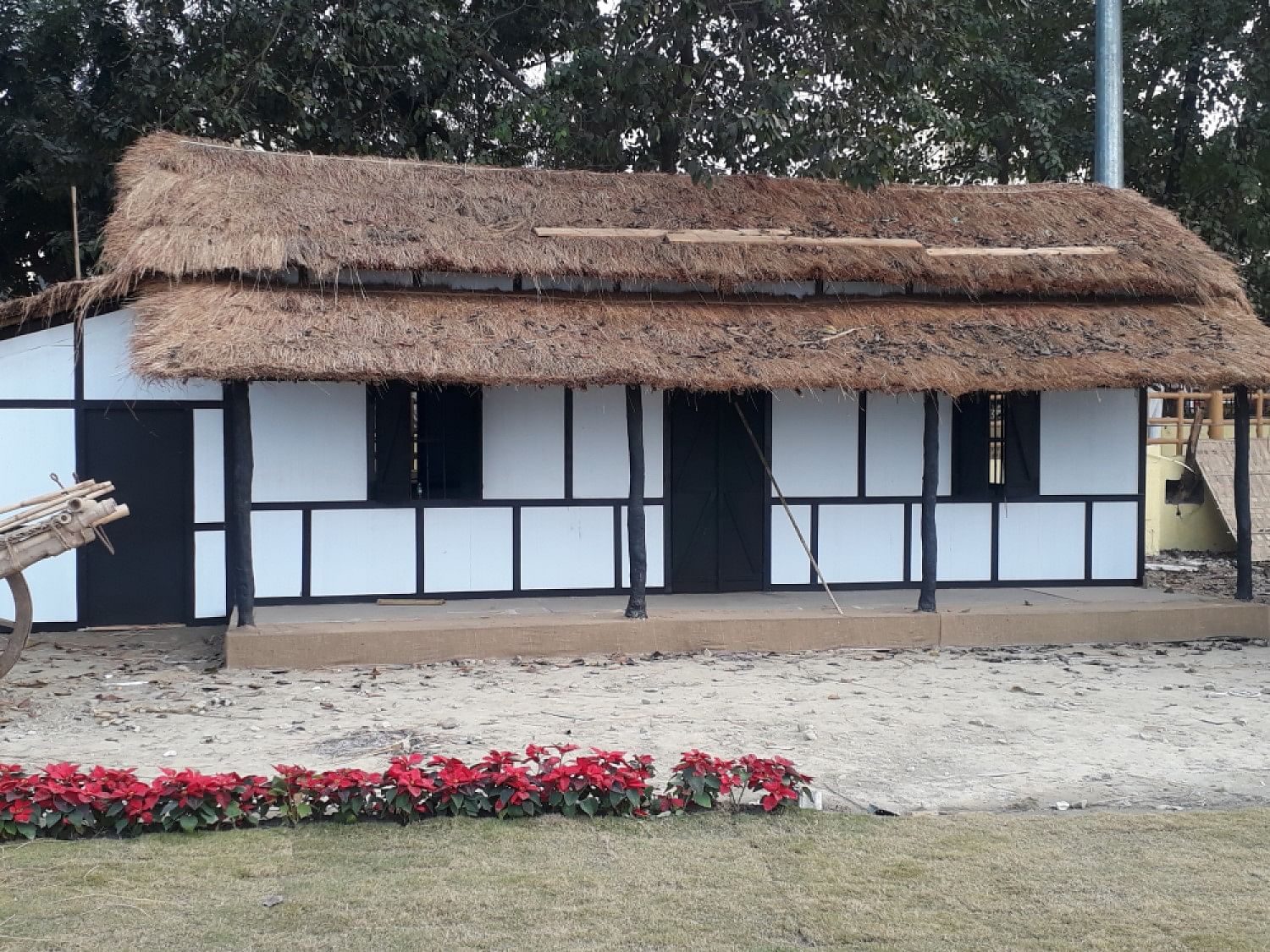
The white-painted thatched Assam type house, constructed here on the bank of the Brahmaputra for Prime Minister Narendra Modi's summit with his Japanese counterpart Shinzo Abe is still being well-maintained with the hope that the same would be rescheduled soon.
Japan, perhaps the most important investment partner to project the Northeast region as India's gateway to the South-East Asian nations under Modi government's Act East Policy postponed the annual summit after violence broke out here on December 11 night during the protest against the Citizenship (Amendment) Act (CAA) 2019. Burning of vehicles, stone pelting, police firing, curfew and internet cut that followed here and in parts rest of the Northeast disrupted life and business for days.
"We hope the summit will be re-scheduled and takes place here," an Assam government official, looking after the preparation for the summit said.
As the protests and anger against Modi government's move to offer citizenship to non-Muslim migrants from Pakistan, Bangladesh and Afghanistan till December 2014 still raging, local experts and entrepreneurs feel that the long foreigners issue in the region must be addressed well as the frequent violence could become a serious hurdle in implementing the Act East Policy.
"India's initiatives for Act East has been definitely affected by CAA's negative impact of the proposal of accepting undocumented illegal immigrants. In South and Southeast Asian neighbourhood, CAA not only created an imbalance of potential migration but also dampened prospective investment by some foreign investors," Prasenjit Biswas, an associate professor of North East Hill University in Meghalaya capital Shillong told DH.
Officials said Japan was willing to invest Rs. 13,000 crore in the Northeast, the biggest foreign investment so far in the region under the Act East Forum set up two years ago. It focusses on improving connectivity, building infrastructure, industrial linkages and improving people to people contact with South-East Asian nations. India wants to connect Guwahati with capitals of at least six South-East Asian nations such as Singapore, Bangladesh, Myanmar, Cambodia, Laos and Bhutan.
But as the National Register of Citizens and the CAA invited people's reaction in neighbours like Bangladesh, Biswas said the foreigner issue must be resolved without affecting the bilateral relations to implement the Act East Policy.
Admitting that the violent protests were a setback for its efforts to invite both domestic and foreign investments, Assam industry minister, Chandra Mohan Patowary said on Saturday that potential investors from Norway and Hungary, worth Rs. 2,000 crore each were now reluctant following the violence. "Even some domestic companies are now worried to invest," he said. The state's tourism sector incurred a loss of an estimated Rs. 400 crore following the violence this month.
Officials said the Inner Line Permit system, being demanded by anti-CAA protesters could also be a dampener for new investments, particularly in Assam and Tripura, where Modi government is focussing more due to their long borders with Bangladesh.